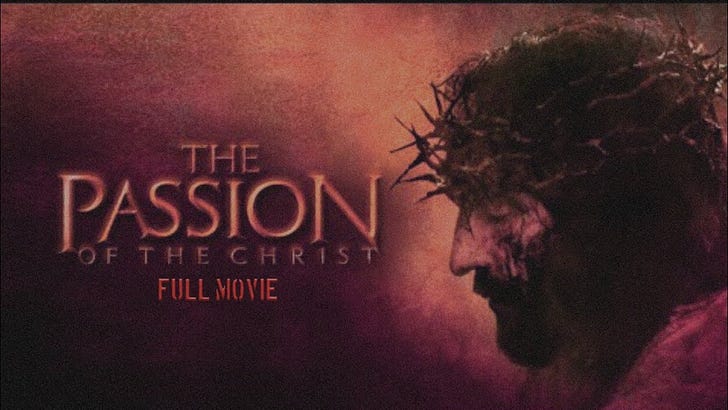THE PASSION of the CHRIST and the Anthropology of Truth - ar
It is a difficult movie to watch, yet it is important to understand the media representation of an event that may or may not have happened, or a personality that may or may not have existed, according to some historians studying the narratives and historiography of the Roman Empire.
When I first saw that movie in a campus town in Midwestern America, I perceived it as a bloody film; it’s about blood and torture throughout, and a man being punished for blasphemy. That was about 40 years ago.
Last night, on a Good Friday when I had the day off from teaching, I decided to watch it again. It is still about the same thing: torture and blood everywhere. It depicts how the Jews killed another Jew from Galilee, a Jesus or Joshua from Nazareth, who, according to some historians, was influenced by the teachings of Siddhartha Gautama Buddha during his wandering years in the Roman Empire.
Mel Gibson, I think, wanted to show that it was the Jews, through their rabbis, who killed the "messiah," and that the Romans were reluctant to impose the death penalty on the leader of the small but growing political revolution in that town. The punishment for both blasphemy and revolt against the temple and the empire was, of course, crucifixion. The crucifix became a symbol of a belief system. Some themes of suffering, such as blood and sacrifices, became the semiotic elements of both Christianity and Catholicism. (I am also reminded of the blood in the flagellation ceremony of the Shia cult, in their remembrance of the massacre of the family of Ali (cousin of Muhammad) in Karbala—a complex political history of Islam.)
I am not used to believing that one needs to think of blood and torture, sacrifices and brutal death, martyrdom, and one-person truth-bearing belief systems as a necessary condition for the structuring of faith. Or to philosophize death, or as a sole definition of the meaning of life. Or, for that matter, the belief in the coming of a messiah. This is why I find Samuel Beckett's play "Waiting for Godot" a useful text to start my students thinking about these uncertainties of knowledge and knowing, the subjectivity of everything, and how our existence is about being and nothingness—or perhaps somethingness—and that we must craft our own meaning in order to render meaning existential. There is a complex interplay between faith, philosophy, and scientific thinking at play here.
That’s what I conjecture is the anthropology of truth.
Anyways, I still have questions concerning the movie "Passion of the Christ," of the tortured man and of blood everywhere, as semiotics of a later belief system.
If God is merciful and compassionate, why let that man on the cross die that way and be tortured as such?
Why must one’s "sins" be taken over by that man on the cross?
Should we be responsible for our actions, good or bad, as subjectively interpreted?
Is a baby born with sin? What does this have to do with "Original Sin" then?
I saw the same thing in the movie as I did some 40 years ago; each one has his/her own truth crafted in a world of uncertainties about what to believe regarding life, death, the universe, and everything. The Romans, the Jews, and the followers of the man on the cross each have their own truth to die for, to live by. We are all waiting for Godot. Or maybe some of us Epicureans don’t.
I don’t know, as the second teacher Socrates might say.
My next movie next weekend might be a documentary about a group of English lads: "Becoming Led Zeppelin." It will explore a musical truth about heaven, the invention of a Stairway to Heaven. An anthropology of truth without the graphic display of the horrors of torture: the semiotics of crucifixion.
Playing in my head now is Louis Armstrong's classic "What a Wonderful World."
-- ar



